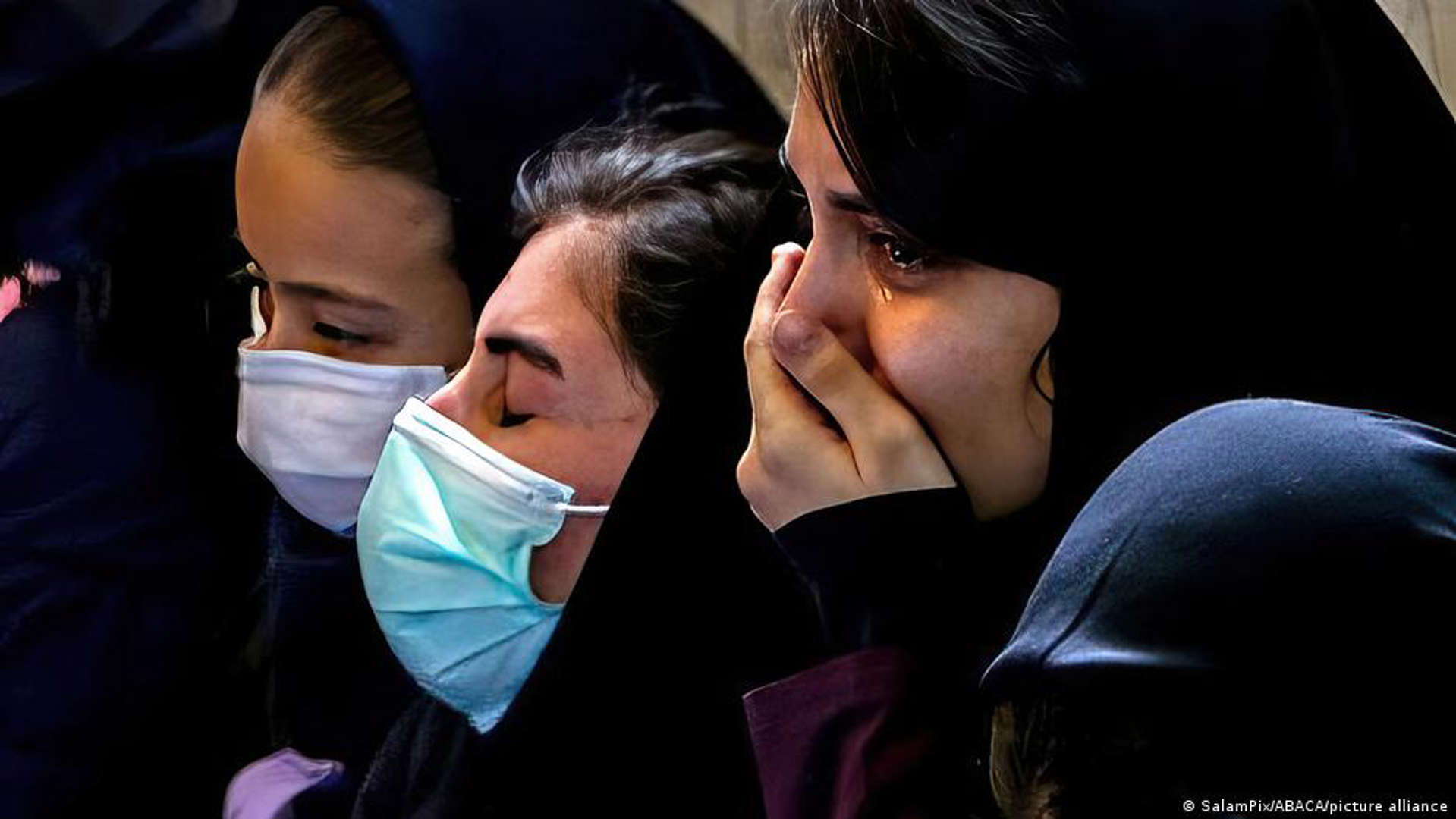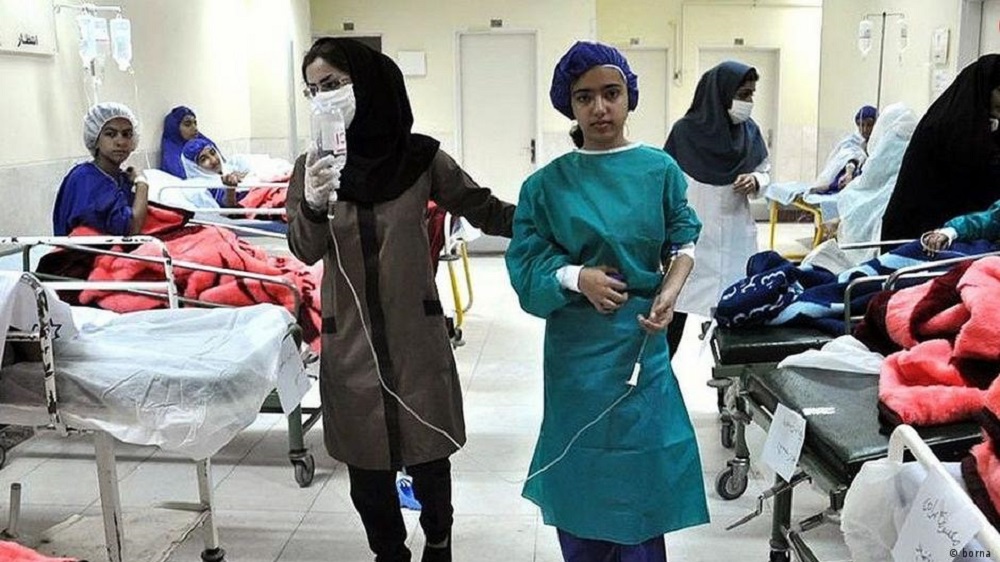Threats in place of investigation

Three months have passed since the first report of a suspected poison attack in a girls’ school in the city of Ghom, centre of Shia scholarship in Iran. Since then, similar events have occurred in almost all the country’s provinces and hundreds of towns and cities. Girls’ schools have been the primary target.
Mohammad Reza Hashemian is a respected anaesthetist and intensive care physician at the Masih Daneshvari clinic in Tehran, Iran’s flagship hospital. When the nationwide poisoning of girls across the country reached the capital for the first time last week, the doctor reported his observations to the daily newspaper Ham Mihan. After the gas had been released, the girls said they registered the smell of rotten eggs present in sulphurous gases. Other recent student accounts report the smell of rotten mandarins or vitex plants. Each of these odours points to combined gases that have been mixed subtly and intelligently, the physician says. Regular people do not have access to such substances, he adds, although they’re used in anaesthetics and laparoscopies.
It wasn’t until 6 March, after most of the population had been left to reach their own conclusions over the past three months, after what seemed an eternity, during which the entire world continued to ponder who could possibly be responsible for this barbarity, only then, did the spiritual leader of Iran, Ayatollah Ali Khamenei, quite casually during a ceremony and at the end of a lengthy address, say that the security forces should swiftly clarify the background to these poisonings and that the culprits should receive the toughest of punishments.

"When it comes to security, we’re the envy of everyone"
The credibility of this comment and the delayed response from the most powerful man in the country is up for lengthy debate. Khamenei’s republic is no stranger to mysterious events such as these, which have cropped up in abundance and frequency in the past. And always, after a period of silence, we have seen similar performances from him, with almost the exact same demands that are subsequently forgotten.
The Islamic Republic maintains some 17 intelligence agencies. They all boast that they have everything and everyone under control. "We may lack a lot of things, but when it comes to security, we’re the envy of everyone in our unsafe region" – this is a mantra, a hallmark incessantly held up by all the propaganda organs of this supposed republic.
And they do plenty to prove that they can indeed be powerful when they want to be. With their Chinese surveillance cameras and methods, they can spot a woman at the wheel of her car displaying ‘bad hijab’ and send her a text message threatening a fine should they catch her again. And we are expected to believe that these secret services noticed nothing in connection with three months of nationwide attacks on schools for girls, almost all of which are fitted out with surveillance cameras?
Journalists, not perpetrators arrested
Over the space of a few days in the autumn of 2015, motorcyclists attacked 15 women with acid as they sat in their cars. It is thought all these women were targeted for being improperly veiled. Disfigurement, blinding and in some cases also death were the consequences of these attacks, which triggered a wave of panic and fear across the nation and among women in particular. The acid attack story was a major social media issue for months, foreign newspapers reported on it, but Khamenei remained silent. Although he pledged and ordered an investigation, his subordinates found nothing. But they did arrest a photojournalist documenting the barbarity.
Who's behind the poisoning of hundreds of schoolgirls in Iran?
The regime is blaming its "enemies" but some say hardline Islamists are responsible. pic.twitter.com/1TltEtqtIo— DW News (@dwnews) March 7, 2023
Khamenei remained silent over the “chain murders” of the 1990s, which spread fear throughout the entire country, but most of all through its intellectual community. During the tenure of reformist President Mohammad Khatami, dozens of well-known writers and dissidents were abducted and murdered over a period of just a few weeks. As though he was an opposition leader, the powerless president demanded an investigation, but those responsible were never found. The term “chain murders” (coined because the killings appeared to be linked) has been rooted in Iranian common parlance ever since.
So far, there has been no news of any arrests in connection with the recent poisonings. Although immediately after Khamenei’s speech last Monday, official news agencies reported that the newspaper journalist Ali Pourtabatabi – the first to report on the poison attack on girls in Ghom – had been arrested. The very same day, Iran’s powerful chief justice threatened anyone whose comments on these cases deviated from the official line.
"Fire at will"
It doesn’t take a genius to work out where the perpetrators are.
"You surely know what آتش به اختیار (fire at will) means," said Khamenei three years ago in a famous speech to his audience, a selected group of Basiji, members of the regime’s volunteer paramilitary force. The term is derived from war, the Ayatollah continued, but on the battlefield of cultural war one must also often act in accordance with the motto "fire at will", because sometimes, for particular reasons, the government cannot or will not go on the cultural offensive. This speech is still posted on Khamenei’s website.
On 3 March, Ayatollah Ahmad Alamolhoda, father-in-law of President Ebrahim Raisi and Friday Imam in the city of Mashhad, said that the nation’s security forces had lost control of the hijab and that the time had come for the devout to take the law into their own hands.
For Hatam Ghaderi, a well-known professor of political studies at the renowned Tarbiat Modares University in Tehran, these gas attacks could potentially have far-reaching consequences for the imminent future of the entire country. In an interview with the BBC on 6 March, the 66-year-old said Iran has recently arrived at an historic turning point. The Iranian system is confronted with multiple domestic and foreign policy crises that appear almost unresolvable, he said. In addition to that, he added, comes the mother of all crises soon facing Iran, the question of Khamenei’s successor. According to Hatami, it is quite possible that certain circles within the senior echelons of power may be preparing for this day of all days – by fomenting a climate of fear and insecurity. This is the considered view of a venerable academic who himself educates university professors.
© Qantara.de 2023
Translated from the German by Nina Coon
Political scientist Ali Sadrzadeh experienced the Iranian Revolution in 1979 firsthand. Sadrzadeh has worked as a journalist since the early 1980s, initially for dpa and the Frankfurter Rundschau, later for Hessischer Rundfunk, including a stint as ARD radio correspondent in Africa.
